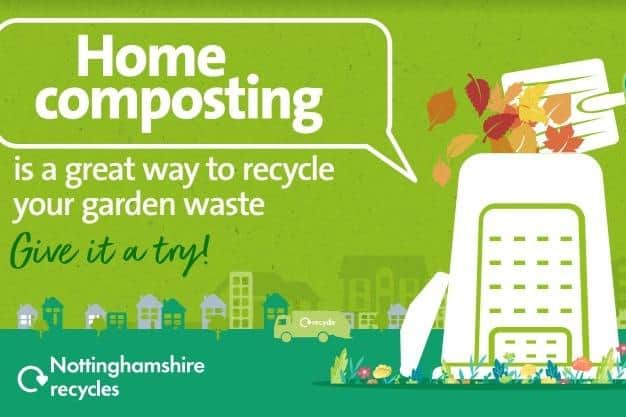Notts residents urged to start composting at home to help in the battle against climate change
and live on Freeview channel 276
The compost produced at home benefits your garden by adding nutrients, improving soil structure, maintaining moisture levels and keeps your soil's pH balance in check.
Home composting is also an anaerobic process that does not produce methane, an additional benefit in the fight against climate change.
Advertisement
Hide AdAdvertisement
Hide AdCoun Neil Clarke MBE, chairman of the Transport and Environment Committee at Nottinghamshire County Council, said: “Composting at home is a way for everyone to take part in the battle against climate change - a year of home composting saves as much CO2 as the amount produced by your kettle in a year.


"The compost you make is also brilliant for your garden and by adding it to your soil you are making your soil healthier and the things you grow healthier too.”
With so many different ways to compost at home there is a method to suit every household from a simple pile of grass and cuttings in the corner of your garden to a three tier wooden structure, a rotating tumbler to a bokashi bin or even a green cone that can handle every type of food waste.
The most popular method is via an open bottomed container placed in a sunny spot in your garden.
Advertisement
Hide AdAdvertisement
Hide AdTo get the best results it’s important to add a variety of different items into the container and to keep a 50/50 balance between the “greens” (e.g. grass cuttings, fruit and vegetable peelings, coffee grounds) and the “browns”(e.g. leaves, shredded paper, cardboard, small twigs).
Turning the compost every few weeks will add the air required for the composting microbes to work effectively.
Lea Hawkes, general manager for Veolia Nottinghamshire, said: “As the saying goes, we don’t need a handful of people doing it perfectly, we need millions of people doing it imperfectly.
"Even if you only have space for a small wormery in your back-yard when combined with millions of people throughout the world your efforts really will make a difference.”
